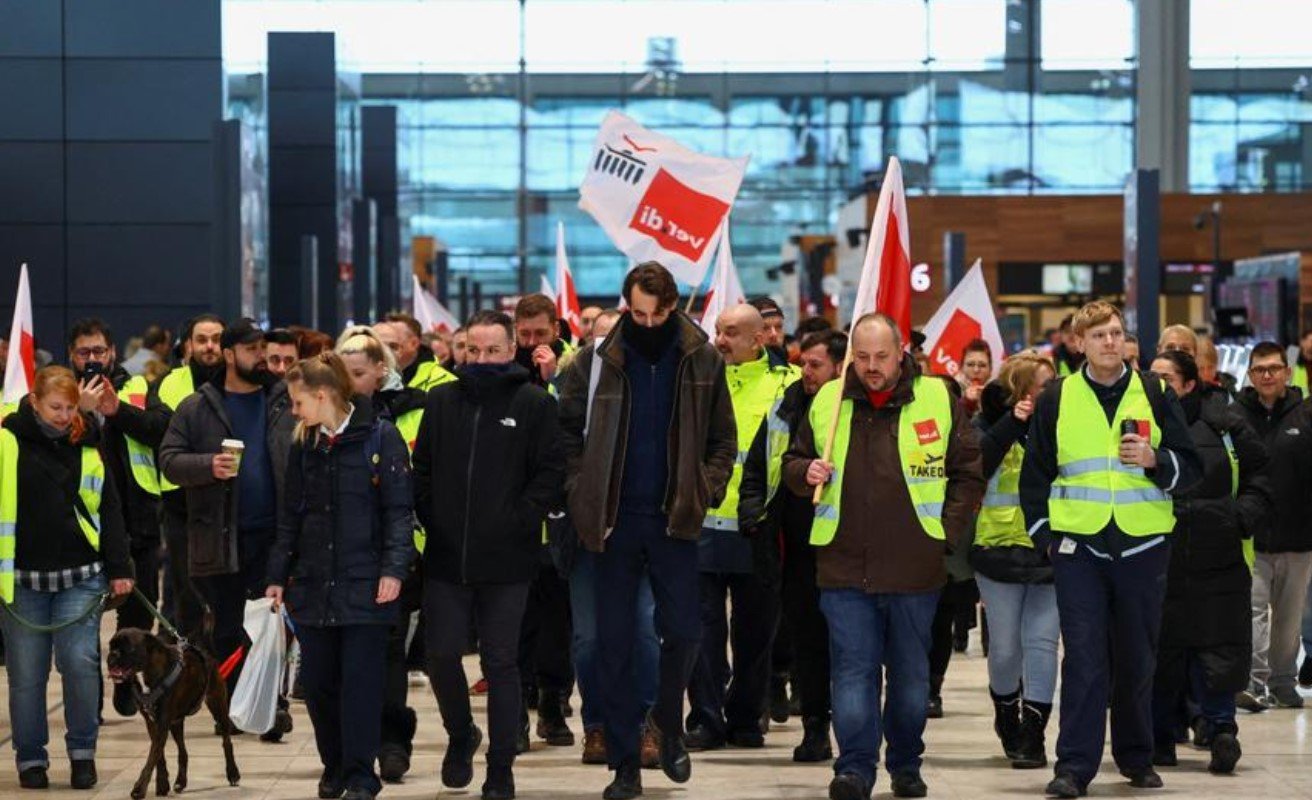Germany Braces for Major Strikes as Public Sector Demands Higher Wages. Strike action is set to grip Germany next week as the Verdi union negotiates for higher wages for 2.5 million public sector workers, including those at airports and other public transport hubs.
The union is aiming to secure higher pay amid persistent inflationary pressures, while the railway and transport union EVG is also preparing for paralyzing strikes at Deutsche Bahn and other bus companies, affecting 230,000 employees in total. Tensions continue to mount as the government shows no signs of budging on wage increases, with the strikes expected to cause chaos across the country.

Recession Looms for Europe’s Largest Economy Amid Inflationary Crisis
As Germany faces the prospect of major strikes and protests, the country is also grappling with an inflationary crisis that threatens a full-blown recession. The economy shrank by 0.4% in the fourth quarter of 2022 and is expected to contract again in the first quarter as inflation weighs heavily on consumption. The combination of negative growth and inflation is crushing living standards and sparking widespread discontent. The Bundesbank has warned that economic activity is likely to fall again in the current quarter, with little sign of a recovery in sight.
Discontent Sparks Protests in France over Pension Reform
While Germany braces for strikes next week, France is already experiencing the fallout from unpopular pension reforms by President Emmanuel Macron. The country has been hit by weeks of protests and unrest, with public transport disrupted and clashes between police and demonstrators. The reforms, which raise the retirement age and introduce a points-based system for calculating pensions, have been met with widespread opposition, with unions expressing concerns that it will lead to a drop in living standards for millions of French citizens. The protests show no sign of abating, with further action expected in the coming weeks.
NATO Faces Challenges to Address Growing Instability in Western Nations
As strikes and protests sweep across Europe, the primary concern is whether NATO is adequately equipped to handle future conflicts amid growing instability in Western nations. With a broadening banking crisis and political uncertainty, there are fears that the alliance may not be equipped to handle the challenges it faces. The situation is exacerbated by the ongoing coronavirus pandemic and the threat of climate change, which further exacerbate social inequality and instability. Whether NATO can successfully navigate these challenges remains to be seen, but the stakes are high and the consequences of failure could be catastrophic.














